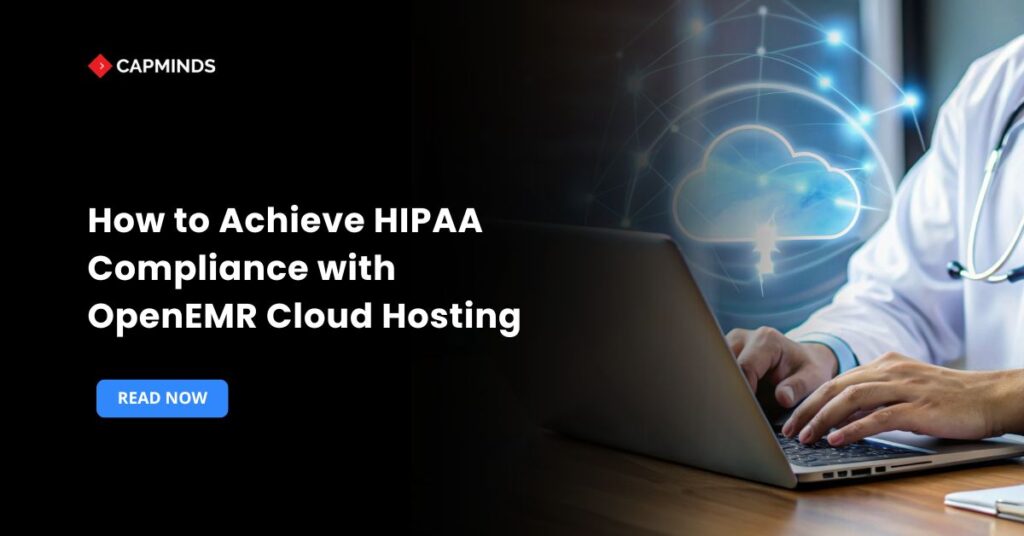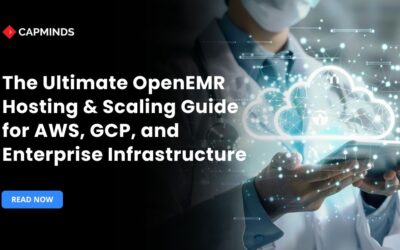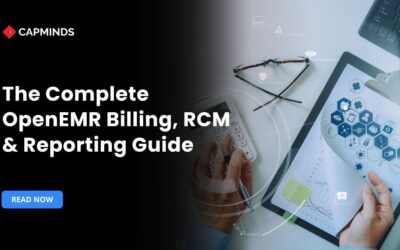How to Achieve HIPAA Compliance with OpenEMR Cloud Hosting
The digital healthcare revolution has new levels of efficiency that have never been witnessed before, but a lot of responsibility is associated with it. The legal yet ethical requirement of safeguarding PHI comes first in front of any healthcare professional, regardless of the size of the business.
With the support of modern and flexible tools such as the OpenEMR cloud hosting, the process of compliance with HIPAA becomes not solitary but multi-layered. In this blog, you’ll find the necessary steps to secure your EHR data and maintain healthcare data security in the cloud.
The HIPAA Importance in Healthcare Cloud Hosting
The HIPAA laws are uncompromising rules on data protection. Its main regulations, the Privacy Rule, the Security Rule, and the Breach Notification Rule, are used to regulate the use, disclosure, and protection of the PHI.
The HIPAA compliance is shared when you transition your practice management and EHR systems to the cloud with your organization (the Covered Entity) and your hosting provider (the Business Associate).
Cloud hosting solutions are more complicated than a physical server in nature, and therefore, a formal, detailed approach will be necessary to achieve the requirements for EHR data protection policies.
The most important and the initial one is the signing of the BAA with your cloud host, and this is legally binding, and it is upon them to provide HIPAA safeguards.
What is OpenEMR, and why is it popular?
The most popular open-source electronic health records and medical practice management solution in the world is OpenEMR. It is an ONC-approved platform with a wide-ranging and overall agreement of tools, such as patient demographics, appointments, electronic billing, prescriptions, and clinical decision support.
OpenEMR particularly suits small-to-mid healthcare practices because of several major benefits:
- Cost-Effectiveness – It is open-source, so it does not incur costly proprietary licensing fees, and thus it is very cheap.
- Control and Customization – The practices have complete access to the source code and can extensively customize it to unique clinical workflows.
- Active Community – The platform is actively developed and managed by a large global community of developers and healthcare professionals who continuously enhance the platform by adding new features and updating its security measures.
The open-source nature implies that even though OpenEMR has the facility of compliance, the duty of its adequate configuration, maintenance, and secure implementation of OpenEMR lies with the user or the outsourced partnership to host OpenEMR.
Knowing the Pillars of HIPAA Compliance
To become HIPAA-compliant, it is necessary to cover the three major safeguards that have to be supported by your OpenEMR deployment and its cloud environment:
1. Administrative Safeguards
These are policies and procedures that are used by the management to establish the way your organization safeguards PHI.
They involve conducting a Risk Analysis to see what threats and vulnerabilities exist, a security management process, training your workers, and control of your business associate contracts, such as the BAA with your host.
2. Physical Safeguards
These guard the physical accessibility of electronic information systems and facilities in which they are contained.
With a clouded EHR, this is mostly the responsibility of your hosting company, and therefore, it should ensure that physical access to servers and data centers is monitored.
3. Technical Safeguards
These include the technology applied to safeguard ePHI and restrict access to it. At this point, the features of OpenEMR that are inherent and the cloud infrastructure meet. Key requirements include:
- Access Control – Controls to make sure that PHI is accessed by authorized personnel.
- Audit Controls – The documentation and review of the activity within information systems that hold PHI.
- Integrity Controls – It is important to make sure that ePHI does not get modified or destroyed inappropriately.
- Transmission Security – Protecting the transmission of ePHI across an electronic network.
Related: The Complete Guide to OpenEMR’s Features and Benefits
Key Compliance Features OpenEMR Supports
OpenEMR has powerful features, when configured properly, to meet the Technical Safeguards of the HIPAA Security Rule:
Role-Based Access Control
OpenEMR provides administrators with the opportunity to create user permissions having fine granularity according to user roles such as Physician, Nurse, and Biller.
This imposes the HIPAA standard of minimum necessary because users can see only the PHI that they need to complete their work.
Audit Trails and Logs
The system will ensure that all actions of the users are carefully recorded, such as logins, logouts, access to certain patient charts, and changes.
Access logs play an important role in tracking suspicious activity as well as offering forensic information in the event of an investigation of a breach.
Authentication and Password Policies
OpenEMR allows the use of strong and required passwords and can be made two-factor authenticated, which greatly enhances user-level security.
Medical Data Encryption
OpenEMR has the ability to encrypt documents uploaded by patients, and when implemented properly on the cloud server, it allows medical data to be encrypted at the database and file system levels.
Cloud Hosting Guide to HIPAA Compliance
The physical/technical environment, which safeguards your data, is your choice of OpenEMR cloud hosting provider; however, the application is OpenEMR. This is important when choosing the appropriate vendor and setup.
1. Data Infrastructure Security
Encryption at Rest and In Transit – The host needs to make sure that all PHI on their servers (data at rest) is encrypted with a secure, up-to-date protocol such as AES-256.
It is also very crucial to have end-to-end encryption, such as SSL/TLS of data in transit, that is, all the communication between your staff and the server of OpenEMR should be encrypted.
Physical and Environmental Controls – Data centers of the cloud provider should be of a high physical level of security, with such aspects of security as limited access, video monitoring, and environmental security (suppression of fire, UPS power).
Automated Backups and Disaster Recovery – The host should be provided with automated backups, regular and encrypted backups, and with a tested, documented, and effective disaster recovery method to help ensure the availability and integrity of the data.
2. Vendor Certification and Documentation
Signed Business Associate Agreement – According to the BAA, it is not possible to have PHI hosted without a full-fledged BAA with your cloud provider.
Security Certifications – Find vendors that have certifications and attestations such as SOC 2 Type II and ISO 27001. These are not HIPAA certifications, but show that they have stringent, autonomously examined security practices.
Network Security – The hosting environment should use powerful network controls, which comprise firewalls, intrusion detection systems, and vulnerability scanning.
CapMinds OpenEMR Cloud Hosting & HIPAA Compliance Services
Securing patient data while ensuring seamless healthcare workflows doesn’t have to be complex, not when you have CapMinds as your trusted digital health technology partner.
We specialize in helping healthcare providers deploy, manage, and maintain HIPAA-compliant OpenEMR cloud environments that are scalable, secure, and fully optimized for clinical efficiency.
With our OpenEMR Cloud Hosting & HIPAA Compliance Services, you get:
- End-to-End OpenEMR Deployment & Customization – From installation to workflow optimization.
- HIPAA Compliance Implementation – Comprehensive security risk assessment, encryption setup, and policy enforcement.
- Cloud Hosting & Infrastructure Management – Secure, high-performance hosting with 99.9% uptime and data redundancy.
- Continuous Monitoring & Support – Ongoing updates, backups, and compliance audits.
CapMinds empowers your practice to stay compliant, secure, and efficient throughout one integrated service ecosystem.
Partner with CapMinds today to build your secure, HIPAA-ready OpenEMR cloud environment.




